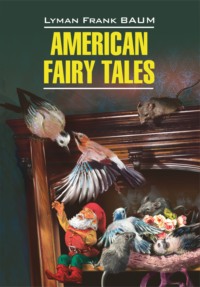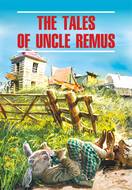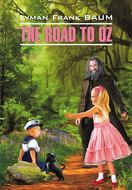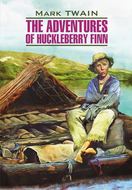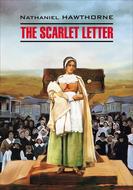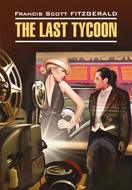Kitobni o'qish: «American Fairy Tales / Американские волшебные сказки. Книга для чтения на английском языке»
© КАРО, 2015
The Box of Robbers
No one intended to leave Martha alone that afternoon, but it happened that everyone was called away, for one reason or another. Mrs. McFarland was attending the weekly card party held by the Women’s Anti-Gambling League. Sister Nell’s young man had called quite unexpectedly to take her for a long drive.
Papa was at the office, as usual. It was Mary Ann’s day out. As for Emeline, she certainly should have stayed in the house and looked after the little girl; but Emeline had a restless nature.
“Would you mind, miss, if I just crossed the alley to speak a word to Mrs. Carleton’s girl?” she asked Martha.
“’course not,” replied the child. “You’d better lock the back door, though, and take the key, for I shall be upstairs.”
“Oh, I’ll do that, of course, miss,” said the delighted maid, and ran away to spend the afternoon with her friend, leaving Martha quite alone in the big house, and locked in, into the bargain1.
The little girl read a few pages in her new book, sewed a few stitches in her embroidery and started to “play visiting” with her four favorite dolls. Then she remembered that in the attic was a doll’s playhouse that hadn’t been used for months, so she decided she would dust it and put it in order.
Filled with this idea, the girl climbed the winding stairs to the big room under the roof. It was well lighted by three dormer windows and was warm and pleasant. Around the walls were rows of boxes and trunks, piles of old carpeting, pieces of damaged furniture, bundles of discarded clothing and other odds and ends2 of more or less value. Every well-regulated house has an attic of this sort, so I need not describe it.
The doll’s house had been moved, but after a search Martha found it away over in a corner near the big chimney.
She drew it out and noticed that behind it was a black wooden chest which Uncle Walter had sent over from Italy years and years ago – before Martha was born, in fact. Mamma had told her about it one day; how there was no key to it, because Uncle Walter wished it to remain unopened until he returned home; and how this wandering uncle, who was a mighty hunter, had gone into Africa to hunt elephants and had never been heard from afterwards.
The little girl looked at the chest curiously, now that it had by accident attracted her attention.
It was quite big – bigger even than mamma’s traveling trunk – and was studded all over with tarnished brass-headed nails. It was heavy, too, for when Martha tried to lift one end of it she found she could not stir it a bit. But there was a place in the side of the cover for a key. She stooped to examine the lock, and saw that it would take a rather big key to open it.
Then, as you may suspect, the little girl longed to open Uncle Walter’s big box and see what was in it. For we are all curious, and little girls are just as curious as the rest of us.
“I don’t b’lieve Uncle Walter’ll ever come back,” she thought. “Papa said once that some elephant must have killed him. If I only had a key – ” She stopped and clapped her little hands together gayly as she remembered a big basket of keys on the shelf in the linen closet. They were of all sorts and sizes; perhaps one of them would unlock the mysterious chest!
She flew down the stairs, found the basket and returned with it to the attic. Then she sat down before the brass-studded box and began trying one key after another in the curious old lock. Some were too large, but most were too small. One would go into the lock but would not turn; another stuck so fast that she feared for a time that she would never get it out again. But at last, when the basket was almost empty, an oddly-shaped, ancient brass key slipped easily into the lock. With a cry of joy Martha turned the key with both hands; then she heard a sharp “click,” and the next moment the heavy lid flew up of its own accord3!
The little girl leaned over the edge of the chest an instant, and the sight that met her eyes caused her to start back in amazement.
Slowly and carefully a man unpacked himself from the chest, stepped out upon the floor, stretched his limbs and then took off his hat and bowed politely to the astonished child.
He was tall and thin and his face seemed badly tanned or sunburnt.
Then another man emerged from the chest, yawning and rubbing his eyes like a sleepy schoolboy. He was of middle size and his skin seemed as badly tanned as that of the first.
While Martha stared open-mouthed at the remarkable sight a third man crawled from the chest. He had the same complexion as his fellows, but was short and fat.
All three were dressed in a curious manner. They wore short jackets of red velvet braided with gold, and knee breeches of sky-blue satin with silver buttons. Over their stockings were laced wide ribbons of red and yellow and blue, while their hats had broad brims with high, peaked crowns, from which fluttered yards of bright-colored ribbons.
They had big gold rings in their ears and rows of knives and pistols in their belts. Their eyes were black and glittering and they wore long, fierce mustaches, curling at the ends like a pig’s tail.
“My! but you were heavy,” exclaimed the fat one, when he had pulled down his velvet jacket and brushed the dust from his sky-blue breeches. “And you squeezed me all out of shape4.”
“It was unavoidable, Luigi,” responded the thin man, lightly; “the lid of the chest pressed me down upon you. Yet I tender you my regrets.”
“As for me,” said the middle-sized man, carelessly rolling a cigarette and lighting it, “you must acknowledge I have been your nearest friend for years; so do not be disagreeable.”
“You mustn’t smoke in the attic,” said Martha, recovering herself at sight of the cigarette. “You might set the house on fire.”
The middle-sized man, who had not noticed her before, at this speech turned to the girl and bowed.
“Since a lady requests it,” said he, “I shall abandon my cigarette,” and he threw it on the floor and extinguished it with his foot.
“Who are you?” asked Martha, who until now had been too astonished to be frightened.
“Permit us to introduce ourselves,” said the thin man, flourishing his hat gracefully. “This is Lugui,” the fat man nodded; “and this is Beni,” the middle-sized man bowed; “and I am Victor. We are three bandits – Italian bandits.”
“Bandits!” cried Martha, with a look of horror.
“Exactly. Perhaps in all the world there are not three other bandits so terrible and fierce as ourselves,” said Victor, proudly.
“’tis so,” said the fat man, nodding gravely.
“But it’s wicked5!” exclaimed Martha.
“Yes, indeed,” replied Victor. “We are extremely and tremendously wicked. Perhaps in all the world you could not find three men more wicked than those who now stand before you.”
“’tis so,” said the fat man, approvingly.
“But you shouldn’t be so wicked,” said the girl; “it’s – it’s – naughty!”
Victor cast down his eyes and blushed.
“Naughty!” gasped Beni, with a horrified look.
“’tis a hard word,” said Luigi, sadly, and buried his face in his hands.
“I little thought,” murmured Victor, in a voice broken by emotion, “ever to be so reviled – and by a lady! Yet, perhaps you spoke thoughtlessly. You must consider, miss, that our wickedness has an excuse. For how are we to be bandits, let me ask, unless we are wicked?”
Martha was puzzled and shook her head, thoughtfully. Then she remembered something.
“You can’t remain bandits any longer,” said she, “because you are now in America.”
“America!” cried the three, together.
“Certainly. You are on Prairie avenue, in Chicago. Uncle Walter sent you here from Italy in this chest.”
The bandits seemed greatly bewildered by this announcement. Lugui sat down on an old chair with a broken rocker and wiped his forehead with a yellow silk handkerchief. Beni and Victor fell back upon the chest and looked at her with pale faces and staring eyes.
When he had somewhat recovered himself6 Victor spoke.
“Your Uncle Walter has greatly wronged us,” he said, reproachfully. “He has taken us from our beloved Italy, where bandits are highly respected, and brought us to a strange country where we shall not know whom to rob or how much to ask for a ransom.”
“’tis so!” said the fat man, slapping his leg sharply.
“And we had won such fine reputations in Italy!” said Beni, regretfully.
“Perhaps Uncle Walter wanted to reform you,” suggested Martha.
“Are there, then, no bandits in Chicago?” asked Victor.
“Well,” replied the girl, blushing in her turn, “we do not call them bandits.”
“Then what shall we do for a living7?” inquired Beni, despairingly.
“A great deal can be done in a big American city,” said the child. “My father is a lawyer” (the bandits shuddered), “and my mother’s cousin is a police inspector.”
“Ah,” said Victor, “that is a good employment. The police need to be inspected, especially in Italy.”
“Everywhere!” added Beni.
“Then you could do other things,” continued Martha, encouragingly. “You could be motor men on trolley cars, or clerks in a department store. Some people even become aldermen to earn a living.”
The bandits shook their heads sadly.
“We are not fitted for such work,” said Victor. “Our business is to rob.”
Martha tried to think.
“It is rather hard to get positions in the gas office,” she said, “but you might become politicians.”
“No!” cried Beni, with sudden fierceness; “we must not abandon our high calling8. Bandits we have always been, and bandits we must remain!”
“’tis so!” agreed the fat man.
“Even in Chicago there must be people to rob,” remarked Victor, with cheerfulness.
Martha was distressed.
“I think they have all been robbed,” she objected.
“Then we can rob the robbers, for we have experience and talent beyond the ordinary,” said Beni.
“Oh, dear; oh, dear!” moaned the girl; “why did Uncle Walter ever send you here in this chest?”
The bandits became interested.
“That is what we should like to know,” declared Victor, eagerly.
“But no one will ever know, for Uncle Walter was lost while hunting elephants in Africa,” she continued, with conviction.
“Then we must accept our fate and rob to the best of our ability,” said Victor. “So long as we are faithful to our beloved profession we need not be ashamed.”
“’tis so!” cried the fat man.
“Brothers! we will begin now. Let us rob the house we are in.”
“Good!” shouted the others and sprang to their feet.
Beni turned threateningly upon the child.
“Remain here!” he commanded. “If you stir one step your blood will be on your own head!” Then he added, in a gentler voice: “Don’t be afraid; that’s the way all bandits talk to their captives. But of course we wouldn’t hurt a young lady under any circumstances9.”
“Of course not,” said Victor.
The fat man drew a big knife from his belt and flourished it about his head.
“S’blood!” he ejaculated, fiercely.
“S’bananas!” cried Beni, in a terrible voice.
“Confusion to our foes!” hissed Victor.
And then the three bent themselves nearly double and crept stealthily down the stairway with cocked pistols in their hands and glittering knives between their teeth, leaving Martha trembling with fear and too horrified to even cry for help.
How long she remained alone in the attic she never knew, but finally she heard the catlike tread of the returning bandits and saw them coming up the stairs in single file.
All bore heavy loads of plunder in their arms, and Lugui was balancing a mince pie on the top of a pile of her mother’s best evening dresses. Victor came next with an armful of bric-à-brac10, a brass candelabra and the parlor clock. Beni had the family Bible, the basket of silverware from the sideboard, a copper kettle and papa’s fur overcoat.
“Oh, joy!” said Victor, putting down his load; “it is pleasant to rob once more.”
“Oh, ecstasy!” said Beni; but he let the kettle drop on his toe and immediately began dancing around in anguish, while he muttered queer words in the Italian language.
“We have much wealth,” continued Victor, holding the mince pie while Lugui added his spoils to the heap; “and all from one house! This America must be a rich place.”
With a dagger he then cut himself a piece of the pie and handed the remainder to his comrades. Whereupon all three sat upon the floor and consumed the pie while Martha looked on sadly.
“We should have a cave,” remarked Beni; “for we must store our plunder in a safe place. Can you tell us of a secret cave?” he asked Martha.
“There’s a Mammoth cave,” she answered, “but it’s in Kentucky. You would be obliged to ride on the cars a long time to get there.”
The three bandits looked thoughtful and munched their pie silently, but the next moment they were startled by the ringing of the electric doorbell, which was heard plainly even in the remote attic.
“What’s that?” demanded Victor, in a hoarse voice, as the three scrambled to their feet with drawn daggers.
Martha ran to the window and saw it was only the postman, who had dropped a letter in the box and gone away again. But the incident gave her an idea of how to get rid of her troublesome bandits, so she began wringing her hands as if in great distress and cried out:
“It’s the police!”
The robbers looked at one another with genuine alarm, and Lugui asked, tremblingly:
“Are there many of them?”
“A hundred and twelve!” exclaimed Martha, after pretending to count them.
“Then we are lost!” declared Beni; “for we could never fight so many and live.”
“Are they armed?” inquired Victor, who was shivering as if cold.
“Oh, yes,” said she. “They have guns and swords and pistols and axes and – and —”
“And what?” demanded Lugui.
“And cannons!”
The three wicked ones groaned aloud and Beni said, in a hollow voice:
“I hope they will kill us quickly and not put us to the torture. I have been told these Americans are painted Indians, who are bloodthirsty and terrible.”
“‘tis so!” gasped the fat man, with a shudder.
Suddenly Martha turned from the window.
“You are my friends, are you not?” she asked.
“We are devoted!” answered Victor.
“We adore you!” cried Beni.
“We would die for you!” added Lugui, thinking he was about to die anyway.
“Then I will save you,” said the girl.
“How?” asked the three, with one voice.
“Get back into the chest,” she said. “I will then close the lid, so they will be unable to find you.”
They looked around the room in a dazed and irresolute way, but she exclaimed:
“You must be quick! They will soon be here to arrest you.”
Then Lugui sprang into the chest and lay flat upon the bottom11. Beni tumbled in next and packed himself in the back side. Victor followed after pausing to kiss her hand in a graceful manner.
Then Martha ran up to press down the lid, but could not make it catch.
“You must squeeze down,” she said to them.
Lugui groaned.
“I am doing my best, miss,” said Victor, who was nearest the top; “but although we fitted in very nicely before, the chest now seems rather small for us.”
“’tis so!” came the muffled voice of the fat man from the bottom.
“I know what takes up the room,” said Beni.
“What?” inquired Victor, anxiously.
“The pie,” returned Beni.
“’tis so!” came from the bottom, in faint accents.
Then Martha sat upon the lid and pressed it down with all her weight. To her great delight the lock caught12, and, springing down, she exerted all her strength and turned the key.
* * *
This story should teach us not to interfere in matters that do not concern us. For had Martha refrained from opening Uncle Walter’s mysterious chest she would not have been obliged to carry downstairs all the plunder the robbers had brought into the attic.
The Glass Dog
An accomplished wizard once lived on the top floor of a tenement house and passed his time in thoughtful study and studious thought. What he didn’t know about wizardry was hardly worth knowing, for he possessed all the books and recipes of all the wizards who had lived before him; and, moreover, he had invented several wizardments himself.
This admirable person would have been completely happy but for the numerous interruptions to his studies caused by folk who came to consult him about their troubles (in which he was not interested), and by the loud knocks of the iceman, the milkman, the baker’s boy, the laundryman and the peanut woman. He never dealt with any of these people; but they rapped at his door every day to see him about this or that or to try to sell him their wares. Just when he was most deeply interested in his books or engaged in watching the bubbling of a cauldron there would come a knock at his door. And after sending the intruder away he always found he had lost his train of thought13 or ruined his compound.
At length these interruptions aroused his anger, and he decided he must have a dog to keep people away from his door. He didn’t know where to find a dog, but in the next room lived a poor glass-blower with whom he had a slight acquaintance; so he went into the man’s apartment and asked:
“Where can I find a dog?”
“What sort of a dog?” inquired the glass-blower.
“A good dog. One that will bark at people and drive them away. One that will be no trouble to keep and won’t expect to be fed. One that has no fleas and is neat in his habits. One that will obey me when I speak to him. In short, a good dog,” said the wizard.
“Such a dog is hard to find,” returned the glassblower, who was busy making a blue glass flower pot with a pink glass rosebush in it, having green glass leaves and yellow glass roses.
The wizard watched him thoughtfully.
“Why cannot you blow me a dog out of glass?” he asked, presently.
“I can,” declared the glass-blower; “but it would not bark at people, you know.”
“Oh, I’ll fix that easily enough,” replied the other. “If I could not make a glass dog bark I would be a mighty poor wizard.”
“Very well; if you can use a glass dog I’ll be pleased to blow one for you. Only, you must pay for my work.”
“Certainly,” agreed the wizard. “But I have none of that horrid stuff you call money. You must take some of my wares in exchange.”
The glass-blower considered the matter for a moment.
“Could you give me something to cure my rheumatism?” he asked.
“Oh, yes; easily.”
“Then it’s a bargain14. I’ll start the dog at once. What color of glass shall I use?”
“Pink is a pretty color,” said the wizard, “and it’s unusual for a dog, isn’t it?”
“Very,” answered the glass-blower; “but it shall be pink.”
So the wizard went back to his studies and the glassblower began to make the dog.
Next morning he entered the wizard’s room with the glass dog under his arm and set it carefully upon the table. It was a beautiful pink in color, with a fine coat of spun glass, and about its neck was twisted a blue glass ribbon. Its eyes were specks of black glass and sparkled intelligently, as do many of the glass eyes worn by men.
The wizard expressed himself pleased with the glassblower’s skill and at once handed him a small vial.
“This will cure your rheumatism,” he said.
“But the vial is empty!” protested the glass-blower.
“Oh, no; there is one drop of liquid in it,” was the wizard’s reply.
“Will one drop cure my rheumatism?” inquired the glass-blower, in wonder.
“Most certainly. That is a marvelous remedy. The one drop contained in the vial will cure instantly any kind of disease ever known to humanity. Therefore it is especially good for rheumatism. But guard it well, for it is the only drop of its kind in the world, and I’ve forgotten the recipe.”
“Thank you,” said the glass-blower, and went back to his room.
Then the wizard cast a wizzy spell and mumbled several very learned words in the wizardese language over the glass dog. Whereupon the little animal first wagged its tail from side to side, then winked his left eye knowingly, and at last began barking in a most frightful manner – that is, when you stop to consider the noise came from a pink glass dog. There is something almost astonishing in the magic arts of wizards; unless, of course, you know how to do the things yourself, when you are not expected to be surprised at them.
The wizard was as delighted as a school teacher at the success of his spell, although he was not astonished. Immediately he placed the dog outside his door, where it would bark at anyone who dared knock and so disturb the studies of its master.
The glass-blower, on returning to his room, decided not to use the one drop of wizard cure-all just then.
“My rheumatism is better to-day,” he reflected, “and I will be wise to save the medicine for a time when I am very ill, when it will be of more service to me15.”
So he placed the vial in his cupboard and went to work blowing more roses out of glass. Presently he happened to think the medicine might not keep, so he started to ask the wizard about it. But when he reached the door the glass dog barked so fiercely that he dared not knock, and returned in great haste to his own room. Indeed, the poor man was quite upset at so unfriendly a reception from the dog he had himself so carefully and skillfully made.
The next morning, as he read his newspaper, he noticed an article stating that the beautiful Miss Mydas, the richest young lady in town, was very ill, and the doctors had given up hope of her recovery.
The glass-blower, although miserably poor, hardworking and homely of feature, was a man of ideas16. He suddenly recollected his precious medicine, and determined to use it to better advantage than relieving his own ills. He dressed himself in his best clothes, brushed his hair and combed his whiskers, washed his hands and tied his necktie, blackened his shoes and sponged his vest, and then put the vial of magic cure-all in his pocket. Next he locked his door, went downstairs and walked through the streets to the grand mansion where the wealthy Miss Mydas resided.
The butler opened the door and said:
“No soap, no chromos, no vegetables, no hair oil, no books, no baking powder. My young lady is dying and we’re well supplied for the funeral.”
The glass-blower was grieved at being taken for a peddler.
“My friend,” he began, proudly; but the butler interrupted him, saying:
“No tombstones, either; there’s a family graveyard and the monument’s built.”
“The graveyard won’t be needed if you will permit me to speak,” said the glass-blower.
“No doctors, sir; they’ve given up my young lady, and she’s given up the doctors,” continued the butler, calmly.
“I’m no doctor,” returned the glass-blower.
“Nor are the others. But what is your errand17?”
“I called to cure your young lady by means of a magical compound.”
“Step in, please, and take a seat in the hall. I’ll speak to the housekeeper,” said the butler, more politely.
So he spoke to the housekeeper and the housekeeper mentioned the matter to the steward and the steward consulted the chef and the chef kissed the lady’s maid and sent her to see the stranger. Thus are the very wealthy hedged around with ceremony, even when dying.
When the lady’s maid heard from the glass-blower that he had a medicine which would cure her mistress, she said:
“I’m glad you came.”
“But,” said he, “if I restore your mistress to health she must marry me.”
“I’ll make inquiries and see if she’s willing,” answered the maid, and went at once to consult Miss Mydas.
The young lady did not hesitate an instant.
“I’d marry any old thing rather than die!” she cried. “Bring him here at once!”
So the glass-blower came, poured the magic drop into a little water, gave it to the patient, and the next minute Miss Mydas was as well as she had ever been in her life.
“Dear me!” she exclaimed; “I’ve an engagement at the Fritters’ reception to-night. Bring my pearl-colored silk, Marie, and I will begin my toilet at once. And don’t forget to cancel the order for the funeral flowers and your mourning gown.”
“But, Miss Mydas,” remonstrated the glass-blower, who stood by, “you promised to marry me if I cured you.”
“I know,” said the young lady, “but we must have time to make proper announcement in the society papers and have the wedding cards engraved. Call tomorrow and we’ll talk it over.”
The glass-blower had not impressed her favorably as a husband, and she was glad to find an excuse for getting rid of him for a time18. And she did not want to miss the Fritters’ reception.
Yet the man went home filled with joy; for he thought his stratagem had succeeded and he was about to marry a rich wife who would keep him in luxury forever afterward.
The first thing he did on reaching his room was to smash his glass-blowing tools and throw them out of the window.
He then sat down to figure out ways of spending his wife’s money.
The following day he called upon Miss Mydas, who was reading a novel and eating chocolate creams as happily as if she had never been ill in her life.
“Where did you get the magic compound that cured me?” she asked.
“From a learned wizard,” said he; and then, thinking it would interest her, he told how he had made the glass dog for the wizard, and how it barked and kept everybody from bothering him.
“How delightful!” she said. “I’ve always wanted a glass dog that could bark.”
“But there is only one in the world,” he answered, “and it belongs to the wizard.”
“You must buy it for me,” said the lady.
“The wizard cares nothing for money,” replied the glass-blower.
“Then you must steal it for me,” she retorted. “I can never live happily another day unless I have a glass dog that can bark.”
The glass-blower was much distressed at this, but said he would see what he could do. For a man should always try to please his wife, and Miss Mydas has promised to marry him within a week.
On his way home he purchased a heavy sack, and when he passed the wizard’s door and the pink glass dog ran out to bark at him he threw the sack over the dog, tied the opening with a piece of twine, and carried him away to his own room.
The next day he sent the sack by a messenger boy to Miss Mydas, with his compliments, and later in the afternoon he called upon her in person, feeling quite sure he would be received with gratitude for stealing the dog she so greatly desired.
But when he came to the door and the butler opened it, what was his amazement to see the glass dog rush out and begin barking at him furiously.
“Call off your dog,” he shouted, in terror.
“I can’t, sir,” answered the butler. “My young lady has ordered the glass dog to bark whenever you call here. You’d better look out, sir,” he added, “for if it bites you, you may have glassophobia!”
This so frightened the poor glass-blower that he went away hurriedly. But he stopped at a drug store and put his last dime in the telephone box so he could talk to Miss Mydas without being bitten by the dog.
“Give me Pelf 6742!” he called.
“Hello! What is it?” said a voice.
“I want to speak with Miss Mydas,” said the glassblower.
Presently a sweet voice said: “This is Miss Mydas. What is it?”
“Why have you treated me so cruelly and set the glass dog on me19?” asked the poor fellow.
“Well, to tell the truth,” said the lady, “I don’t like your looks. Your cheeks are pale and baggy, your hair is coarse and long, your eyes are small and red, your hands are big and rough, and you are bow-legged.”
“But I can’t help my looks!” pleaded the glassblower; “and you really promised to marry me.”
“If you were better-looking I’d keep my promise,” she returned. “But under the circumstances you are no fit mate for me, and unless you keep away from my mansion I shall set my glass dog on you!” Then she dropped the ’phone and would have nothing more to say.
The miserable glass-blower went home with a heart bursting with disappointment and began tying a rope to the bedpost by which to hang himself.
Some one knocked at the door, and, upon opening it, he saw the wizard.
“I’ve lost my dog,” he announced.
“Have you, indeed?20” replied the glass-blower tying a knot in the rope.
“Yes; some one has stolen him.”
“That’s too bad,” declared the glass-blower, indifferently.
“You must make me another,” said the wizard.
“But I cannot; I’ve thrown away my tools.”
“Then what shall I do?” asked the wizard.
“I do not know, unless you offer a reward for the dog.”
“But I have no money,” said the wizard.
“Offer some of your compounds, then,” suggested the glass-blower, who was making a noose in the rope for his head to go through.
“The only thing I can spare,” replied the wizard, thoughtfully, “is a Beauty Powder.”
“What!” cried the glass-blower, throwing down the rope, “have you really such a thing?”
“Yes, indeed. Whoever takes the powder will become the most beautiful person in the world.”
“If you will offer that as a reward,” said the glassblower, eagerly, “I’ll try to find the dog for you, for above everything else I long to be beautiful.”
“But I warn you the beauty will only be skin deep,” said the wizard.
“That’s all right,” replied the happy glass-blower; “when I lose my skin I shan’t care to remain beautiful.”
“Then tell me where to find my dog and you shall have the powder,” promised the wizard.
So the glass-blower went out and pretended to search, and by-and-by he returned and said:
“I’ve discovered the dog. You will find him in the mansion of Miss Mydas.”
The wizard went at once to see if this were true, and, sure enough, the glass dog ran out and began barking at him. Then the wizard spread out his hands and chanted a magic spell which sent the dog fast asleep, when he picked him up and carried him to his own room on the top floor of the tenement house.
Afterward he carried the Beauty Powder to the glassblower as a reward, and the fellow immediately swallowed it and became the most beautiful man in the world.
The next time he called upon Miss Mydas there was no dog to bark at him, and when the young lady saw him she fell in love with his beauty at once.
“If only you were a count or a prince,” she sighed, “I’d willingly marry you.”
“But I am a prince,” he answered; “the Prince of Dogblowers.”
“Ah!” said she; “then if you are willing to accept an allowance of four dollars a week I’ll order the wedding cards engraved.”
Bepul matn qismi tugad.
